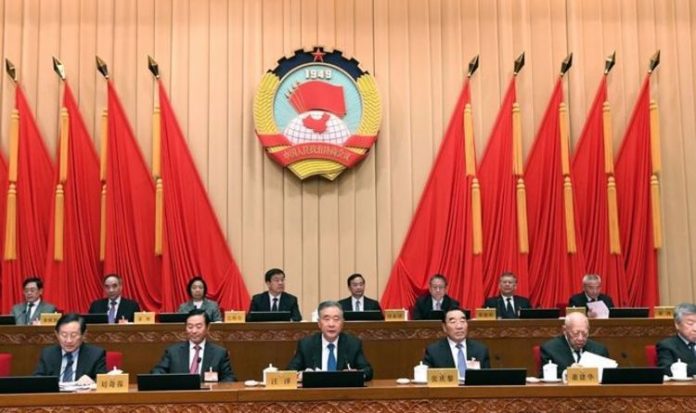More than a third of the companies involved in a new scheme by Xi Jinping were identified as British companies in key industries. British companies in aviation, energy, defence and data, have all been acquired under Xi’s ‘Made in China 2025’ goal. In their report, the Henry Jackson Society said: “The Government must make sure that it urgently reviews all of these prior acquisitions to ascertain the full extent of how compromised the UK might be by foreign corporate ownership.”
The UK Government has put forward the National Security and Investment Bill in the Commons this week.
Under this, the Government has the power to scrutinise and intervene in business transactions.
Once passed, the legislation will create an added protection for British companies within 17 sectors, including defence and energy.
Within the report, the society identifies seven Chinese institutes with links to the Communist Party in China.

China news: Xi snaps up 115 companies (Image: PA)

China news: Xi Jinping (Image: PA)
The ‘Seven Sons’ are: Beijing Institute of Technology, Beihang University, Harbin Engineering University, Harbin Institute of Technology, Nanjing University of Aeronautics and Astronautics, Nanjing University of Science and Technology and Northwestern Polytechnical University.
Each of these institutes is supervised by the Chinese government and are among the highest-funded by the Communist Party.
They have also infiltrated a host of UK universities and, according to 2019-20 figures, a total of 899 ‘Seven Sons’ graduates were enrolled in British universities.
Of the 151 ‘Seven Sons’ graduates enrolled in high-risk subjects, the Universities of Oxford and Sheffield have the highest number of enrolments with 16.
JUST IN: China SNUBS Joe Biden by refusing to acknowledge election victory

China news: Xi has put forward his plan at 2025 (Image: PA)
A Government spokeswoman said: “We already have powers to intervene in mergers and acquisitions on national security grounds and recently lowered the threshold for intervention in three sensitive sectors of the economy.”
Amid the risk of infiltration into the UK’s education system, the Government has also broadened the Academic Technology Approval Scheme.
This scheme means all students attempting to study sensitive subjects in the UK must gain this qualification.
These are subjects which relate to where students’ knowledge could be used in programmes to develop Advanced Conventional Military Technology (ACMT), weapons of mass destruction or their means of delivery.
DON’T MISS
Royal POLL: As Megxit review date nears, should Queen strip Sussexes [Poll]
Did we lock down too early? R-rate drops below 1 whole WEEK before [Latest]
MEPs in ‘salaried hibernation’ moan about losing out on expenses [Insight]

China: Universities are fearful of the law (Image: PA)

China: Oxford and Sheffield had a high number of students (Image: GETTY)
Commenting on the expansion of the scheme, a Foreign Office statement said: “As an open country, we welcome foreign students, including from China, where they add to the academic richness of our world-leading universities.
“But we will not accept collaborations which compromise our national security and ATAS is one of the robust procedures we have in place to protect national security and counter foreign interference.”
Universities across the UK have also put in measures in order to protect their students from the Hong Kong security law.
The security law makes any collusion with foreign forces or subversion of the central government illegal.
The law also applies to outside of Hong Kong, therefore, forcing universities to draw up measures to protect students.
Patricia Thornton, associate professor of Chinese politics at Oxford University, said: “I have decided not to alter the content of my teaching.

China news: The Government has moved to broaden the scheme (Image: PA)
“However, like my colleagues in the US, I am mindful of my duty of care for my students, many of whom are not UK citizens.
“My students will be submitting and presenting work anonymously in order to afford some extra protection.”







